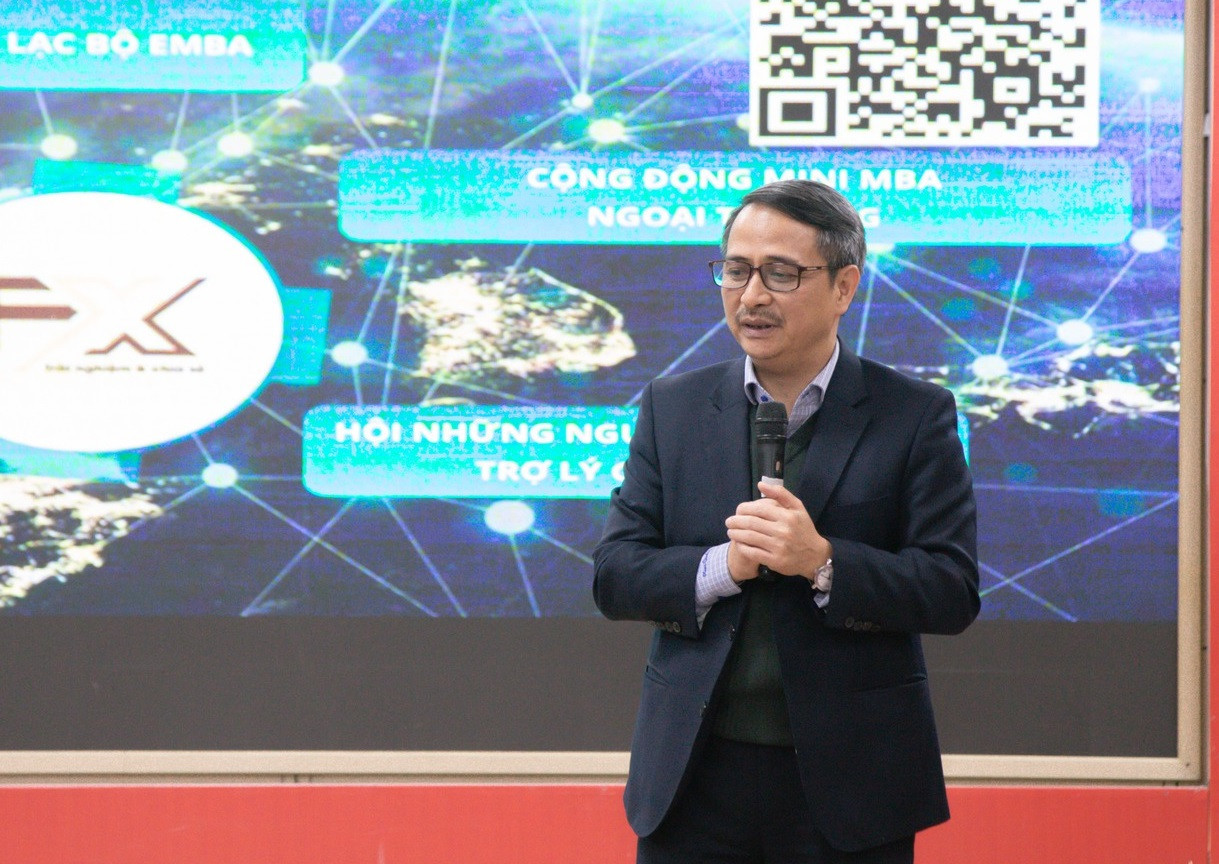Amid the surge of high-quality, low-cost Chinese products, a significant challenge for Vietnamese enterprises in 2025 is adapting to technological advancements. This era presents both hurdles and transformative opportunities, demanding swift and strategic responses from local businesses.
Major challenges for Vietnamese businesses in 2025
“Vietnamese businesses faced immense challenges in 2024, and these will persist into 2025,” Associate Professor Nguyen Van Minh, Director of the Institute of Training and Business Consultancy at the Foreign Trade University, stated during a virtual seminar on economic and investment trends for 2025.

Dr. Minh identified three key challenges for Vietnamese enterprises, particularly manufacturers.
The first challenge lies in competing with a "flood" of high-quality, affordable Chinese products entering global markets.
“China, with its ambition to become a superpower, is leveraging its surplus production capacity to dominate international markets. This leaves domestic manufacturers, including those in Vietnam, at a disadvantage,” Minh explained.
The second challenge is technological advancement, particularly the rapid evolution of digital technologies and artificial intelligence (AI).
In 2025, the emergence of synthetic AI capable of mimicking human reasoning is predicted to revolutionize industries. Globally, the concept of "one-person billion-dollar companies" - businesses run by a single individual supported by automated systems and AI - is gaining traction.
AI is already being widely utilized in fintech, banking, and investment analysis, offering automated decision-making and recommendations. However, many Vietnamese businesses are still grappling with the basics of digital transformation, leaving them unprepared for this technological leap.
The third challenge stems from declining domestic purchasing power. Coupled with reliance on traditional business models, many enterprises risk being outpaced by more adaptive competitors.
Opportunities amid adversity
Despite these challenges, Dr. Minh urged Vietnamese businesses to seek partnerships with Chinese firms and other global giants to expand their presence in international markets. He stressed that overcoming initial hurdles could pave the way for enduring success on the global stage.
Dr. Minh also highlighted the potential for economic “realignments” in the 4.0 and 5.0 technology waves, where traditional leaders may lose their dominance to innovative newcomers. He pointed to crises in traditional markets as fertile ground for investments in new business models, such as electric vehicles and renewable energy.
“For example, Japan’s three major automakers recently set aside competition to form a strategic alliance in response to the EV and renewable energy race. VinFast’s rise exemplifies the ability to seize such opportunities,” Minh noted.
While Vietnam’s economic growth rate of 6-7% remains enviable, much of this growth depends on external factors like foreign direct investment (FDI) and exports. Dr. Minh emphasized the need to bolster domestic strength to ensure sustainable development.
Strategies for leveraging Vietnam’s advantages
Vietnam’s favorable geopolitical position and strategic partnerships with major global players provide a solid foundation for growth.
Additionally, the country’s dual transformation strategy - focusing on digitalization and sustainability - aligns with its Vision 2045 goal of becoming a developed nation. Recent policies, such as the Politburo's Resolution No. 57 on advancing science, technology, and digital transformation, underscore this commitment.
Dr. Minh urged Vietnamese enterprises to embrace innovation boldly. “With the right mindset, seizing opportunities, and creating new possibilities, Vietnamese businesses can become global giants, leading their respective industries during this era of ‘realignment,’” Minh concluded.
Binh Minh